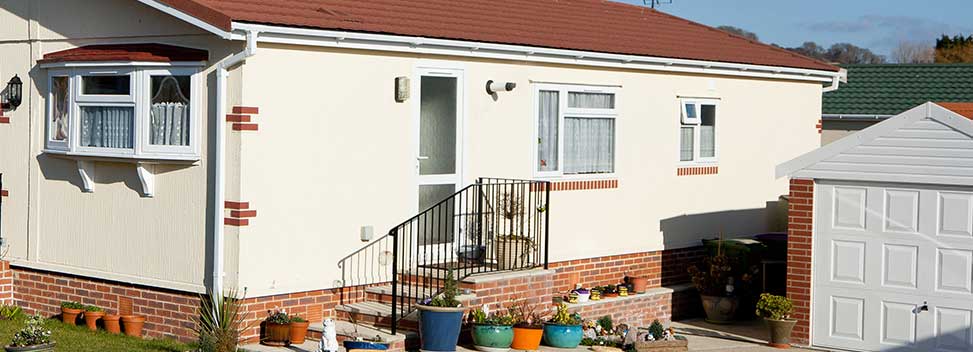Buying a park home – is it a good investment?
Written by Andy Hale
15 Jun 2023
7 min read

Moving from a traditional brick-and-mortar property into a park home can be an attractive option for those wanting to downsize, save money, or retire in a new location.
But before you pack up your belongings, there are a few things to consider. While a scenic location and affordable living is tempting, park homes can often come with unexpected costs and complications.
So, are park homes a good investment? We’ll help you weigh up the pros and cons of park living before you start labelling boxes.
Why buy a Park Home?
Affordability, low maintenance costs, and a community feel are some of the reasons people step away from urban living in favour of rural park homes.Affordability
Park homes are cheaper to buy than traditional properties, with prices starting from around £25,000. If you’re entering the property ladder, it’s a much more affordable way to become a homeowner. And if you already have a property to sell, you may save a large sum of money.Safety and security
Park homes are located in private, gated estates, making them more secure. They’re often monitored by 24-hour security and park managers, so someone is always nearby to keep watch and stop anti-social behaviour.Low maintenance
Since park homes are often made of timber, they’re lower maintenance than brick properties. They’re designed for convenience with fewer rooms and floors, so general upkeep is kept to a minimum.Low running costs
Park homes can be cheaper to run because of the materials used to build them. Plus, they can use low-emission windows and doors for greater energy efficiency. Council tax bills are also usually lower in park homes, so monthly outgoings can be significantly reduced.Considerations when buying a park home
Although park homes offer considerable financial and living benefits, they don’t operate like traditional properties. There are other factors you need to consider when buying a park home.Pitch fees
Pitch fees for a park home can generally range from £135-£190 per month. They are required because you own the park home but not the plot of land it stands on. This land belongs to the park and your pitch fee is similar to rent, paying towards the upkeep of the park.Mortgage
Most mortgage lenders won’t provide mortgages for park homes because they’re neither a freehold or leasehold property. The site holder is the legal owner of all land where the park is built. You may find some lenders that offer loans for park homes, but they typically come with higher repayments and interest rates. As such, park homes may be better for people who have large deposits or equity.Commission
If you sell your park home, you won’t keep all of the equity because you aren’t the official land owner. Therefore, you must pay a commission fee to the site owner – the maximum rate is 10% of the sale price.Living permanently in your park home
Some park communities don’t offer 12-month residency licences, so you may find yourself stuck if it’s your permanent home. Check with the park home site before buying a park home.Do park homes hold their value?
The life expectancy of a park home can be 70-80 years when properly maintained. As such, they often depreciate in value because their condition worsens quickly, and they need more upkeep. However, a well-maintained park home can tell a different story. If it’s built in a sought-after location and sold in a good condition, you may even make money. The current state of the market also has a lot to do with the value. Like any other property, the sale price of park homes can rise and fall at any time based on factors out of your control.How much is my park home worth?
Looking at onthemarket.com, a new park home costs around £55,000, although bespoke homes with added extras can be worth over £140,000. Pre-owned park homes are typically worth around £25,000-£50,000, making them very affordable for retiring residents or homeowners with less equity.Making money from your park home
If you don’t plan on living there all year, letting out your park home can be an easy way to generate extra income. Before you turn your park home into a rental property, make sure you’ve considered the following:- Location — Tenants will likely pay more for park homes in a desirable location, as well as areas with low crime rates and reduced risk of natural disasters such as flooding.
- Size — If your property has several bedrooms and sitting rooms, you’ll be able to charge more than a one-bed park home, for example.
- Age — Newly built park homes are generally higher in value because they’re more modern and require less maintenance.
- Cost of letting — You’ll need to factor in maintenance costs, management fees, and general upkeep payments before letting out your park home.
- Insurance fees — It’s always a good idea to insure your home. Intasure offers appropriately priced, comprehensive park home insurance that can be tailored to the unique risks of your property.
